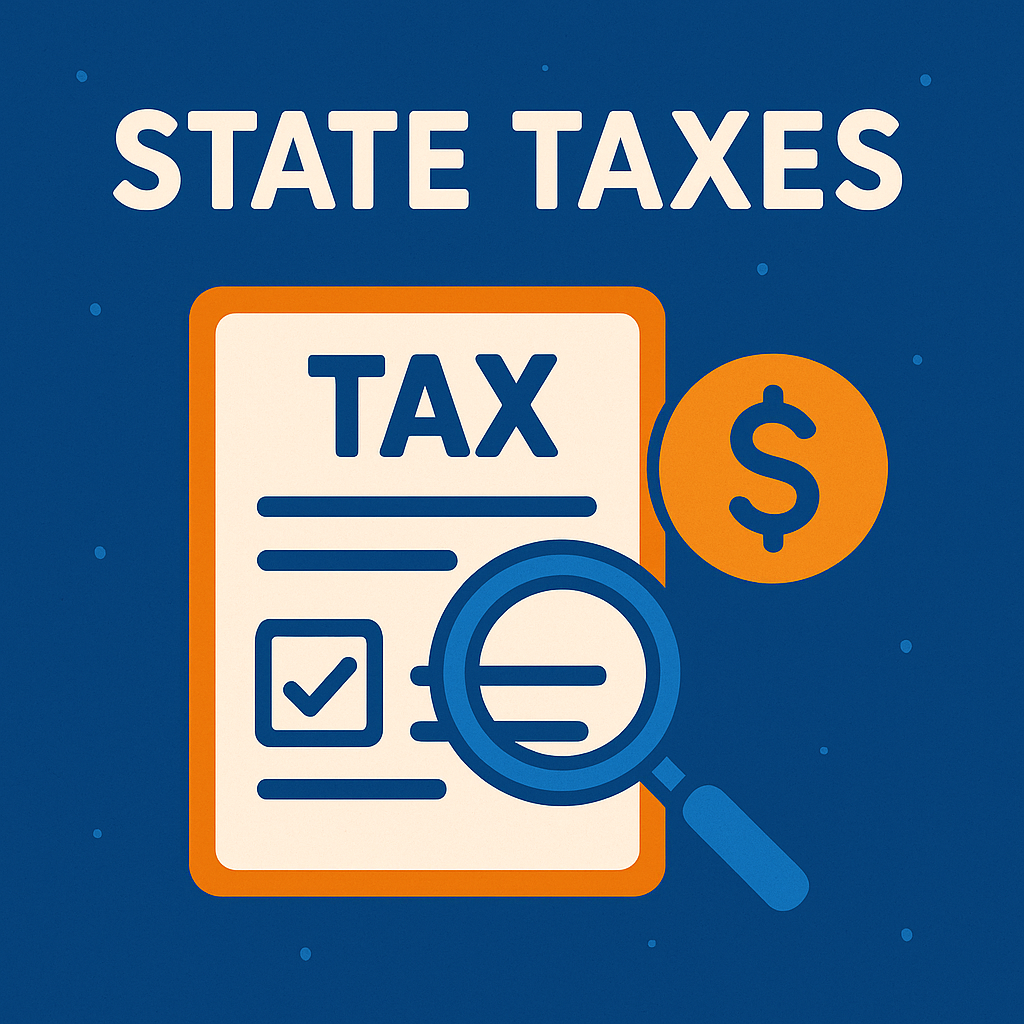What to Know About State Taxes If You Work in Multiple States
If you live in one state but work in another—or earn income in multiple states—your tax situation can get tricky. Whether you’re a remote worker, frequent business traveler, or juggling multiple gigs across state lines, here’s what you need to know to stay on top of your state tax obligations.
1. You May Have to File in More Than One State 📄📍
If you earned income in more than one state during the year, you may need to file:
A resident return in your home state, and
One or more nonresident returns in the states where you worked.
📝 On nonresident returns, you report only the income earned in that state. On your resident return, you report all income, but most states offer a credit for taxes paid to other states to avoid double taxation.
2. Understand Your Residency Status 🏠
Your tax home or domicile—usually where you live most of the year—is the state where you’re considered a resident for tax purposes. You’re generally a:
Resident: You live there permanently or most of the year.
Nonresident: You earned income there but don’t live there.
Part-Year Resident: You moved in or out during the year.
📌 States have different rules, but spending 183 days or more in a state often counts as residency.
3. Be Aware of Reciprocal Agreements 🔄
Some neighboring states have reciprocal agreements that let you pay taxes only in your home state, even if you work across state lines. This usually applies to W-2 employees.
💡 Example: If you live in New Jersey and work in Pennsylvania, you may only have to pay New Jersey taxes—no PA nonresident return needed.
✔️ Check if your states have a reciprocity agreement and submit the proper exemption form to your employer.
4. Remote Work Can Complicate Things 🖥️✈️
Remote workers who spend time in multiple states throughout the year may create tax nexus in multiple places, especially if you:
Work from different states for extended periods
Travel for work or live part-time elsewhere
Some states may expect a return even if you’re just passing through for work—especially if you’re self-employed.
5. Keep Detailed Records 📆🧾
To protect yourself and file accurately:
Track where and when you worked in each state
Record how much income was earned per state
Save travel receipts and time logs
This will help you properly allocate income when filing and avoid penalties or audits.
6. Don’t Forget Local Taxes 🏙️
Some cities and counties have their own income taxes. If you worked in a city like New York City or Philadelphia, you may owe local tax on top of state taxes.
7. How to Get Help 🧑💼
Because state tax laws vary widely, and rules can be complex, consider:
Using multi-state tax software
Consulting a tax professional who understands your unique situation
Final Thoughts 🌟
Working in multiple states can create complicated tax responsibilities, but with good recordkeeping and an understanding of the rules, you can stay compliant and avoid overpaying. Don’t wait until tax season to figure it all out—track everything throughout the year.
✅ Tip: Keep a work travel log and calendar to make tax time way easier!
